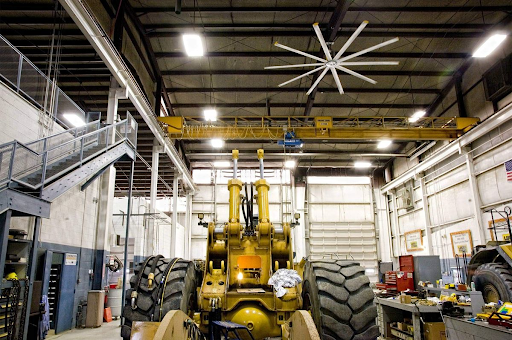Efficient waste management is a crucial part of running a large facility. Managing excess materials, packaging, and recyclables can quickly become overwhelming and costly. Many facilities are turning to industrial balers as a solution to streamline their operations. These machines compress waste into compact, manageable bales, reducing disposal costs and freeing up valuable space. With the right strategy, industrial balers can significantly improve efficiency and cut unnecessary expenses.
Benefits Of Industrial Balers For Large Facilities
Industrial balers are machines designed to compress materials like cardboard, plastics, and paper into dense bales. Large facilities produce a high volume of waste daily, and managing it can be expensive if left unorganized. By compacting materials, industrial balers reduce the frequency of waste pickups. Fewer pickups mean lower hauling costs and less downtime. They also make storage easier, keeping facilities cleaner and more organized.
Space Optimization Using Industrial Balers
Space is a premium in large facilities. Storing loose waste can take up valuable floor space that could be used for production or storage of goods. Industrial balers help by condensing bulky materials into small, uniform bales. This allows for more efficient use of storage areas and reduces clutter. Workers can move freely, and the risk of accidents decreases. A well-organized space often leads to smoother operations and lower operational costs.
Labor Savings With Industrial Balers
Handling large volumes of waste manually requires significant manpower. Employees spend time collecting, sorting, and transporting materials, which can detract from their core tasks. Industrial balers automate much of this process. Fewer employees are needed for waste management, allowing staff to focus on production and other critical functions. This shift improves productivity and reduces labor costs over time.
Environmental Impact And Cost Reduction
Industrial balers don’t just save money—they also contribute to sustainability. Compressed bales are easier to recycle, and facilities can sell recyclables for extra revenue. Reducing waste volume also lowers transportation emissions and disposal fees. By combining cost efficiency with environmental responsibility, facilities gain a dual advantage that aligns with modern operational standards.
Maintenance Practices For Industrial Balers
Regular maintenance is key to keeping industrial balers running efficiently. Routine inspections, timely repairs, and proper training for staff reduce the risk of breakdowns. A well-maintained baler ensures consistent performance, preventing costly interruptions in waste management. Investing in preventive care saves money in the long run and prolongs the lifespan of the equipment.
Integration With Facility Operations
Large facilities often deal with multiple waste streams, from packaging to production scraps. Integrating industrial balers into existing processes simplifies waste handling. Bales can be easily moved to storage or directly to recycling partners, streamlining logistics. Proper integration minimizes operational bottlenecks, reduces labor needs, and maximizes the return on investment for industrial balers.
Conclusion
Industrial balers offer large facilities an effective way to reduce costs while improving efficiency. They save space, lower labor expenses, support environmental initiatives, and streamline waste management. Facilities that adopt these machines often see immediate improvements in organization and long-term financial benefits. By investing in industrial balers and proper maintenance practices, large operations can achieve both operational efficiency and cost savings.




